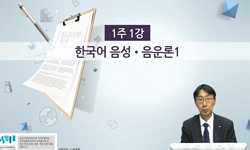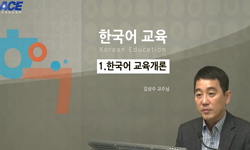Instinctual explanations are required when the individual facts observed were surprising things that had been unexpected or unexplainable within their perception. The act of abduction occurs to explain the continuity of the observed surprise by making...
http://chineseinput.net/에서 pinyin(병음)방식으로 중국어를 변환할 수 있습니다.
변환된 중국어를 복사하여 사용하시면 됩니다.
- 中文 을 입력하시려면 zhongwen을 입력하시고 space를누르시면됩니다.
- 北京 을 입력하시려면 beijing을 입력하시고 space를 누르시면 됩니다.
학습자의 귀추적 추론 양상 분석을 통한 국어사 탐구 교육 연구 = A study on inquiry education of Korean language history through analysis of learner’s abductive inference
한글로보기https://www.riss.kr/link?id=A107321268
- 저자
- 발행기관
- 학술지명
- 권호사항
-
발행연도
2021
-
작성언어
-
- 주제어
-
KDC
700
-
자료형태
학술저널
-
수록면
31-101(71쪽)
- 제공처
-
0
상세조회 -
0
다운로드
부가정보
다국어 초록 (Multilingual Abstract)
Instinctual explanations are required when the individual facts observed were surprising things that had been unexpected or unexplainable within their perception. The act of abduction occurs to explain the continuity of the observed surprise by making a connection with other evidence.
The existing Korean language history education had been structured in a way that lists the characteristics of the period, and such approaches which could not uncover the relevance do not comport with the cognitive structure of learners. Hence, it is problematic since it can inhibit the interest and necessity of learners as well as the understanding. In this regard, this paper is based on the fact that abduction, which is thought to be an instinctive on a daily basis, can operate as a logic to associate the modern Korean language and past Korean language which were considered as individual factors originally.
In chapter Ⅱ, the study examined the existing Korean language history education and reestablished the concept of Korean language history education. To identify what was required for Korean language history education, the curriculum was reviewed, and the cognitive survey on 32 teachers and 479 learners was conducted. After that, the goal of Korean language history education was reset. In addition, the definitions and types of abduction was reveiwed from Korean language historyinquiry educational perspective.
In chapter Ⅲ, this study examined the pattern of abductive inference in abductive inquiry learning of Korean language history education to draw implications which could be applied in abductive inquiry learning of Korean language history education. A structured inquiry task which was created to induce abductive inference was presented to 131 learners, and it was analyzed based on the type of abductive examined in chapter Ⅱ. As a result, four aspects -‘reasoning aspect (ga)’ which was referred as who could not conduct observationd, ‘reasoning aspect (na)’ which was referred as who can conduct only observation, ‘reasoning aspect (da)’which was referred as who could not conduct creative abduction, but connect observation to knowledge of grammar, and ‘reasoning aspect (ra)’which was reffered as who can conduct creative conduction - were derived. Since most of the learners to conduct type 3 1 of abduction well, ‘reasoning aspect (ga)’was uncommon. The number of‘reasoning aspect (da)’was small, because learners tend to conduct type 3 of abduction together when they solve the problem about type 2 of abduction. ‘reasoning aspect (da)’was rarely found from the questionnaire survey, so it was captured through a small group discussion. Thus, ‘reasong aspect (na)’ was the most dominant factor among four aspects. Therefore, most cases of difficulties in performing ‘abductive inquiry learning of Korean language history’ were mostly based on the occurrence of errors in type 2 of abudction, so it is necessary to establish educational scaffolding. Also, it was found out that the process of inquiry learning of Korean language history is required as a result of aspect analysis.
In chapter Ⅳ, the paper set a design principles of education, which were ‘principles of inquiry topic selection’, ‘principles of inquiry procedure structuring’, and appropriate inquiry topics were selected and inquiry procedures were structured. Also, this study prepared constructive frame which can include the dimensions of ‘method’ and ‘strategy’ in the contents of education, and showed the actual contents composition by inquiry topic.
This paper has an edcational significance in reviewing the limitations of existing inquiry educational perspective. Korean language history education which emphasized pedagogical justice and education contents. Also, it is meaningful since it suggests the direction of Korean language history education from a macro perspective and shows the possibility of Korean language history inquiry education by introducing ‘abduction’. In addition, this study has an pedagogical meaning because it observes the learners’ abductive thinking, and prepares the actual education contents composition.
동일학술지(권/호) 다른 논문
-
- 서울대학교 국어교육과
- 김민지 ( Minji¸ Kim )
- 2021
-
표현 효과 중심의 문법교육적 관점에 입각한 학습자의 부정표현 선택 과정 유형 분석 연구
- 서울대학교 국어교육과
- 김범진 ( Kim¸ Beom-jin )
- 2021
-
인도네시아인 한국어 학습자 쓰기 교육의 응결장치 교수학습 연구
- 서울대학교 국어교육과
- 김선주 ( Kim Sun Joo )
- 2021
-
한국 현대시 읽기에서 중국인 학습자 경험의 작용에 대한 고찰
- 서울대학교 국어교육과
- 김소연 ( Jin¸ Xiaoyan )
- 2021




 KISS
KISS






